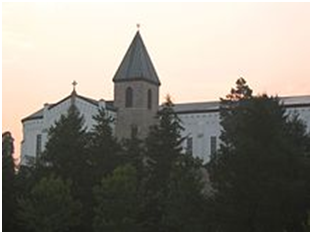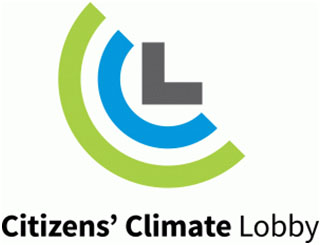Ethan Bodnaruk
A Mystical Path to Activism
I’m a Mennonite Christian with strong Unitarian Universalist leanings. I was raised Presbyterian and discovered Mennonites in an unusual setting, preparing the way for my involvement in interfaith environmental advocacy.
Earning my undergraduate degree in engineering was a time of searching and struggle, slowly widening my worldview and reconciling scientific and religious ways of thinking. I was drawn to the many biblical texts that point to deep contemplative transformation, including Jesus’ prayer that his followers would be one with God as He was one with God, the parable of the vine, and Paul’s many mystical writings.
During my college years, I came across a book about Christian contemplative prayer written by a Trappist monk named Basil Pennington. I quickly became acquainted with similar monks and teachers, Thomas Merton, Richard Rohr, and Thomas Keating, whose spirituality embodied a commitment toward deep transformative prayer, nonviolence, interfaith engagement, and action.
 The Trappist Abbey of Gethsemane – Photo: Wikipedia
The Trappist Abbey of Gethsemane – Photo: Wikipedia
Drawn to the contemplative Christian tradition, I took a year off before starting graduate school to live at two Trappist monasteries in the U.S. The experience was everything I hoped for and more.
At the monasteries I found a book about early Anabaptist spirituality: “Anabaptist” is essentially another name for Mennonites. I was thrilled to learn about this Christian movement devoted to nonviolence and peacemaking that didn’t violently throw away everything that the Catholic tradition had to offer – unlike the rest of the Protestant Reformation. Many early Anabaptist leaders were previously monks or friars who were intimately familiar with Catholic medieval mystics and contemplatives.
After leaving the monasteries, I became a Mennonite and ended up informally representing the church as a member of the Religions for Peace North American Interfaith Youth Network.
I’ve also been very impressed with modern expressions of the Mennonite faith, including its major role in Christian Peacemaking Teams, the 10,000 Villages of the fair-trade store, and the denomination’s development, aid, and peacebuilding organization, Mennonite Central Committee (MCC).
With its global reach, MCC workers and the people they partner with are first-hand witnesses of how climate change can exacerbate food insecurity, poverty, security issues, and natural disasters. Environmental quality, injustice, climate change, and the need to transition away from fossil fuels are important moral concerns for Mennonites as reflected in the Mennonite Creation Care Network and its Creation Care educational curriculum.
I recently became active in a group called Citizens’ Climate Lobby (CCL) because of how it incorporates economic – and you could even say spiritual – wisdom into a holistic approach. CCL is all about convincing Congress to pass legislation making fossil fuels more expensive via a gradually rising fee that oil, gas, and coal extraction companies will have to pay based on the emissions their fuels produce.

The companies recover these costs by raising prices, but the money raised by the fee gets distributed back to households in a monthly rebate check, making up for the small increase in the cost of living.
This is wise because the cost of fossil fuels doesn’t reflect their true costs of air pollution and climate change. We can subsidize renewable energy all we want, but unless we make fossil fuels more expensive, companies will continue to profit by removing them from the earth. Even oil and gas companies say a price on carbon is needed to transition to renewables!
The wisdom behind this approach comes from CCL’s focus on relationship and trust building with our Members of Congress, and how the proposal has many elements that appeal to conservatives as well as progressives:
- it doesn’t grow the size of government since all revenues are returned to households,
- it’s a free market approach as opposed to regulations, which are often relatively ineffective, mired by bureaucracy, and difficult to enforce, and
- it would actually grow the economy, dispelling the myth that action on climate change has to be bad for people and jobs.
The Mennonite Creation Care curriculum also calls for a price on fossil fuels, and CCL’s approach embodies key Mennonite values: it can heal political polarization (reconciliation) and doesn’t take a combative approach toward people reluctant to address climate change. It reaches them through their values and worldview, recognizing that deeper discussion and empathy is needed on how to address climate change. This recognizes their humanity and goodness, a key tenet of nonviolence.
My Mennonite faith, my academic training in Ecological Engineering, and my experience with interfaith dialogue (listening, humility, and shared values) call me to act, and in a small way, be a prophet trying to point the way forward on a difficult – and inherently spiritual – problem we all face.
Ethan Bodnaruk is a Ph.D. Candidate in Ecological Engineering at SUNY-ESF in Syracuse, NY, and a co-leader of the Religions for Peace North American Interfaith Youth network.
